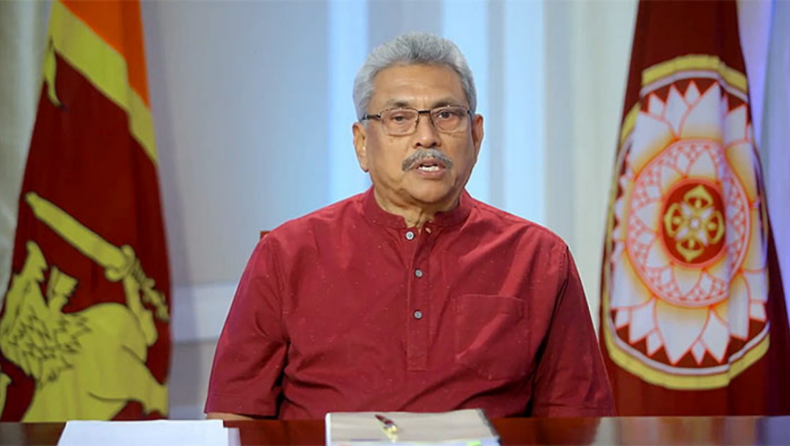After dozens of MPs walked out of the ruling coalition, President Gotabaya Rajapaksa lifts the state of emergency.

Sri Lankan President Gotabaya Rajapaksa has lifted the state of emergency. After hundreds of MPs walked out of the ruling coalition, which has been battling to control protests over the country’s economic downturn,
Finance Minister Ali Sabry resigned a day after his appointment and ahead of important meetings with the International Monetary Fund for a loan program on Tuesday, in yet another blow for the administration.
On Monday, Rajapaksa disbanded his Cabinet and sought to establish a unity government as public outrage grew over the governing family’s handling of the debt-ridden economy, which has resulted in food, medication, and fuel shortages, as well as continuous power outages.
Rajapaksa annulled the emergency rule ordinance that took effect last Friday in a gazette issued late Tuesday. In his letter of resignation to the president, Sabry stated that he believed he had “behaved in the best interests of the country.”
“At this critical juncture, the country requires stability to weather the current financial crisis and difficulties,” he wrote in the letter obtained by Reuters, adding that he would resign from his seat in Sri Lanka’s Parliament if the president wanted to replace him with someone from outside.
Demonstrations against food and fuel shortages, which have been sparked by a lack of foreign cash for imports, began last month but have picked up steam in recent days, with conflicts between protestors and police occurring in certain cases.
Food and gasoline shortages, triggered by a lack of foreign funds for imports, began last month but have gained pace in recent days, with clashes between protestors and police erupting in certain situations.

‘With the people’
Party leaders published the names of the 41 MPs who are leaving the coalition in Parliament. As a result, Rajapaksa’s government now has fewer than the 113 members required to maintain a majority in the 225-member house.
Although there has yet to be a vote count, Rajapaksa’s minority government may find it more difficult to decide. Independent lawmakers may continue to back government measures in the House of Commons.
“Essentials such as fuel and cooking gas are in constant limited supply. Hospitals are on the edge of closing because of a lack of drugs, according to Maithripala Sirisena, the head of the Sri Lanka Freedom Party, which dropped out of Rajapaksa’s government.
“At this time, our party is on the people’s side.” Sirisena demanded that the president and prime minister give a detailed plan for resolving the country’s financial crisis. Opposition parties, meanwhile, requested the two brothers to resign, reflecting the mood of the country’s 22 million inhabitants. Basil Rajapaksa, the third brother, resigned as finance minister on Sunday.
A move to form a unity government with all parties represented in Parliament was also rejected by the opposition parties. Sri Lanka has announced the temporary closure of its embassies in Oslo and Baghdad, as well as the consulate general in Sydney, from April 30 as part of a critical fund shortage.
Sri Lanka’s diplomatic mission is being restructured, according to the foreign ministry, due to the country’s “economic circumstances and foreign money limits.” There is an urgent shortage of pharmaceuticals, particularly life-saving drugs, according to the Government Medical Officers Association, which represents over 16,000 doctors across the country.
Published By : Ankit Singh
Edited By : Khushi Thakur













